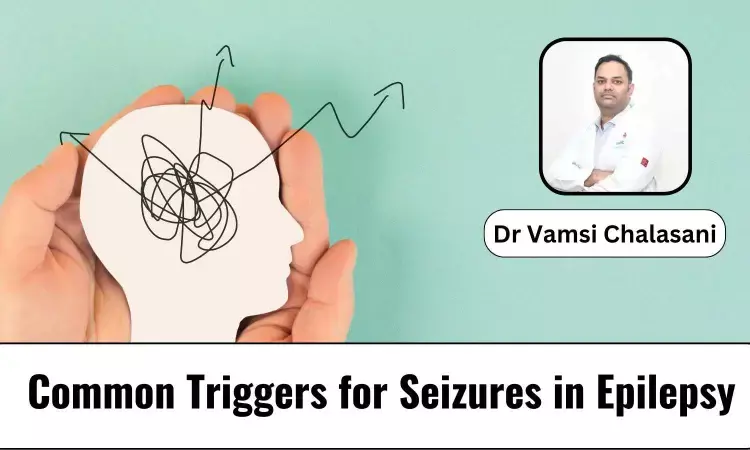- Home
- Medical news & Guidelines
- Anesthesiology
- Cardiology and CTVS
- Critical Care
- Dentistry
- Dermatology
- Diabetes and Endocrinology
- ENT
- Gastroenterology
- Medicine
- Nephrology
- Neurology
- Obstretics-Gynaecology
- Oncology
- Ophthalmology
- Orthopaedics
- Pediatrics-Neonatology
- Psychiatry
- Pulmonology
- Radiology
- Surgery
- Urology
- Laboratory Medicine
- Diet
- Nursing
- Paramedical
- Physiotherapy
- Health news
- Fact Check
- Bone Health Fact Check
- Brain Health Fact Check
- Cancer Related Fact Check
- Child Care Fact Check
- Dental and oral health fact check
- Diabetes and metabolic health fact check
- Diet and Nutrition Fact Check
- Eye and ENT Care Fact Check
- Fitness fact check
- Gut health fact check
- Heart health fact check
- Kidney health fact check
- Medical education fact check
- Men's health fact check
- Respiratory fact check
- Skin and hair care fact check
- Vaccine and Immunization fact check
- Women's health fact check
- AYUSH
- State News
- Andaman and Nicobar Islands
- Andhra Pradesh
- Arunachal Pradesh
- Assam
- Bihar
- Chandigarh
- Chattisgarh
- Dadra and Nagar Haveli
- Daman and Diu
- Delhi
- Goa
- Gujarat
- Haryana
- Himachal Pradesh
- Jammu & Kashmir
- Jharkhand
- Karnataka
- Kerala
- Ladakh
- Lakshadweep
- Madhya Pradesh
- Maharashtra
- Manipur
- Meghalaya
- Mizoram
- Nagaland
- Odisha
- Puducherry
- Punjab
- Rajasthan
- Sikkim
- Tamil Nadu
- Telangana
- Tripura
- Uttar Pradesh
- Uttrakhand
- West Bengal
- Medical Education
- Industry
Common Triggers for Seizures in Individuals with Reflex Epilepsy - Dr Vamsi Chalsani

Reflex epilepsy, a subtype of epilepsy, is identified as epileptic seizures and is triggered by specific external or internal stimuli. Understanding these triggers is paramount for individuals with reflex epilepsy to manage their condition effectively and enhance their quality of life.
These triggers can vary greatly from person to person, making it crucial for individuals with reflex epilepsy to be aware of their unique susceptibilities.
Visual Triggers:
Visual stimuli are among the most common triggers for reflex epilepsy, some of them are listed below:
• Flashing lights or strobe effects: Intense or rapidly changing lights, such as disco lights, video games, or flashing sunlight, can provoke seizures.
• Specific colours or patterns: Certain individuals may exhibit sensitivity to particular colours or patterns, such as stripes or grids, leading to seizure activity.
• Reading or writing: The repetitive visual movement involved in reading or writing can trigger seizures in susceptible individuals.
• Watching television or movies: The rapid succession of scenes or exposure to bright lights in media can also act as triggers for some individuals.
Auditory Triggers:
Auditory stimuli can also induce seizures in individuals with reflex epilepsy, they are:
• Loud noises or sudden sounds: Alarms, fireworks, or excessively loud music can prompt seizure activity.
• Specific sounds or melodies: Certain repetitive sounds or familiar tunes may trigger seizures in susceptible individuals.
Other Sensory Triggers:
Beyond visual and auditory stimuli, various sensory inputs can act as triggers:
• Startle response: Sudden movements, touches, or other unexpected sensations can provoke seizures in individuals with startle epilepsy.
• Temperature changes: Exposure to extreme temperatures, such as very hot or cold water, can trigger seizures in some individuals.
• Strong smells or tastes: Certain odours or flavours may be problematic for individuals with reflex epilepsy, potentially leading to seizure activity.
Internal Triggers:
Internal factors, including emotional and physiological states, can also influence seizure occurrence:
• Stress, anxiety, or emotional arousal: Strong emotions can significantly lower the seizure threshold in some individuals.
• Sleep deprivation or fatigue: Insufficient sleep can increase susceptibility to seizures.
• Hormonal changes: Fluctuations in hormonal levels, particularly during menstruation, can trigger seizures in some women.
• Cognitive activities: Engaging in complex mental tasks, such as math or problem-solving, can act as triggers for certain individuals.
It is essential to recognize that triggers for reflex epilepsy vary significantly among individuals, and identifying personal triggers is crucial for effective management.
Collaboration with healthcare professionals is essential to develop personalized strategies for trigger avoidance and seizure management.
Additional Considerations:
• Reflex epilepsy affects 4-7% of individuals with epilepsy, underscoring its prevalence and significance.
• Seizures can profoundly impact individuals and their families, affecting daily activities, driving privileges, and employment opportunities.
• Early diagnosis, adherence to treatment regimens, and lifestyle modifications are key components of effective epilepsy management.
• Encourage individuals to learn more about reflex epilepsy and seek support from epilepsy organizations and community resources.
It is important to have a comprehensive understanding of triggers associated with reflex epilepsy for individuals living with this condition.
It is also crucial to raise awareness, foster support and promote education to empower individuals with reflex epilepsy to effectively manage their condition and lead fulfilling lives.
Disclaimer: The views expressed in this article are of the author and not of Medical Dialogues. The Editorial/Content team of Medical Dialogues has not contributed to the writing/editing/packaging of this article.
Dr Vamsi Chalasani MBBS, MD (General Medicine), DM (Neurology) is a Consultant (Neurologist) at Manipal Hospital, Vijayawada having over 7 years of experience in the field of Neurology. Dr Chalasani specialises in the treatment of Headache, Neuropathy, Stroke, Parkinson's Disease, Epilepsy and Dementia.
Next Story


